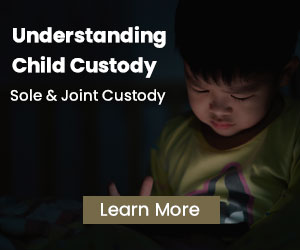Divorce is always hard when it comes to the children since they are placed into a situation that they need to manage not only their own emotions, but likely also the emotions of the people around them, including their parents. Many of these children end up as victims of divorce and may carry these scars into adulthood, resulting in a potential aversion to marriage and relationships.
How can divorced parents split up without emotionally causing additional hurt to their children?
Let’s find out.
Your child is NOT your messenger – communicate on your own
The most common mistake is to communicate through your children after divorce. When you do this, it creates unnecessary emotional stress for your children, forcing them to handle a potentially explosive situation that you choose not to handle on your own. Negotiation between you and your ex-spouse should be done between the two of you, not through your children.
If it is hard for you to speak with your spouse, you can make use of email. Email is a great tool to communicate, discuss and air your opinions when you are making decisions or detailing the practicalities of raising your child with your ex-spouse. Your family lawyer should encourage you to use email as a communication tool as it also provides a recorded message that is admissible in Court, making both you and your ex-spouse more cautious with words.
Your child is NOT your therapist either
It may be tempting for you to speak about your feelings and hurt to your older children, especially when they are older teens. They may approach you and offer a listening ear for your pain, but remember that you are the parent. You should not unload your feelings unnecessarily onto your older children. Maintaining the boundaries of parent and child will protect your older teens from damage. If you need to talk, you can either speak with a divorce lawyer, your friends or even seek out a professional therapist.
Be an understanding parent
Children need to be understood, and your children could be feeling topsy turvy after your divorce. Talk to your children about their feelings and validate those feelings. Listen to what they say and try to rephrase whatever they have told you to show them that you understand. You do not always have to have a solution to their problem, but understanding them is a must. While it may be extremely difficult, do not criticise your ex-spouse in front of your children.
Remember that your children are 50% of your ex-spouse, so criticising your ex-spouse is an indirect critic of your children. Be focused on your children’s feelings and encourage them to talk to you whenever they are feeling a certain way. When you focus on your children’s feelings, you will have less time to focus on yours and in the longer term, both you and your children can heal in the loving connection that you have created with them.
Diffuse Tension in the home
When your children return home after a visit to your ex-spouse, do not grill them with what happened over there. It is a direct indication of your own insecurity and it affects your children negatively. On the other hand, keeping quiet and not asking them how the weekend was also signal your resentment and unhappiness that they were away.
Your children will misunderstand your silence as resentment and treat their “other life” as a separate entity from you. What you can do is to ask them general and cheerful questions to diffuse any tension that might have arisen and then let it go. Focus on what you can provide them – the most important ones being your love and your time. Forget about what happened over the weekend as long as your children are happy, you can be happy too.
Repair and contain damage done
You might have been made aware of the mistakes that you have done to cause damage to your children while reading through this article. Do not worry – it is not too late to undo what you have done. Even if your children have reached their teenage years, you can still undo the damages done.
If you have made mistakes, these are some of the things you can do:-
- Apologise to your children – it makes it special and goes a long way.
- Explain to them why you are apologising and tell them exactly what had gone wrong. Commit yourself to them that you will move away from such unnecessary behaviours from now onwards.
- Come to an agreement with your children on a specific signal to tell you that you have overstepped the line.
For example, when your children find you criticising your ex-spouse, they can raise their hands to let you know. By getting your children to do this, you give yourself a chance to stop your mistakes and also create the awareness of just how much you have been doing it.













